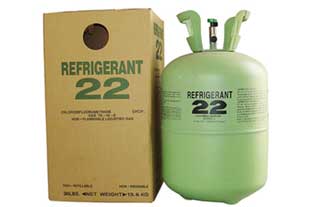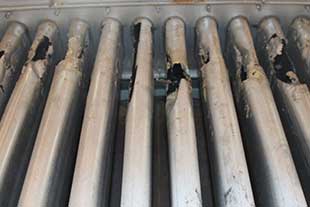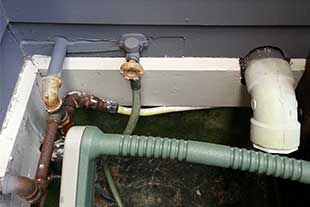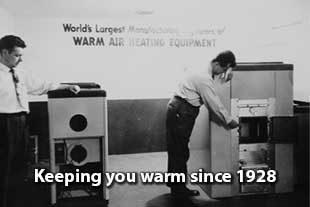What's the one thing in your house that directly impacts your safety, your health, your comfort and your finances? No, not an unruly kid! It's your heating and air conditioning system, of course.
Safety. Health. Comfort. Finances. Those are four pretty important things, wouldn't you agree? If you think about it, those are the main reasons we live in houses instead of caves. Ask any caveman and I'm sure he'd be thrilled to trade places with you providing he could be sure he would safe, healthy, comfortable and financially sound.
In a tough economy the last thing you need is a surprise A/C repair. While all mechanical systems require repairs from time to time, many are preventable. In no particular order, here are the ten most common problems we encounter every Spring and what you can do to avoid them.
LeBlanc Heating responds to hundreds of emergency service calls every year, but the past couple of years have been different. Lately it seems that there have been more problems and certainly a lot more widespread. It also seems every year we are hit with some type of storm that causes the power to go out for days, floods, pipes freezing, electrical surges, etc.
For those of our customers who have natural or LP gas to supply an appliance in their home, we want to inform you of a new code relating to its piping. In the past, gas piping has been installed using steel pipe. This is a hard pipe which has to be threaded to make connections. During the past two decades, some manufacturers have been selling flexible gas piping named CSST piping. That’s short for Corrugated Stainless Steel Tubing.
Believe it or not some HVAC companies charge a one hour service fee upwards of a 100 dollars to replace your batteries! One of the largest contributors to no heat calls is dead thermostat batteries. More often than not homeowners call HVAC companies with no heat calls and a technician is sent out only to find that the thermostats batteries are dead. Thankfully your a LeBlanc Heating customer and you have resources to teach you how to change those batteries for FREE!

LeBlanc Heating & Air Conditioning is notifying its customers that due to federal regulations; air conditioning manufacturers will no longer be allowed to use R-22 refrigerant in residential air conditioners and heat pumps produced after December 31, 2009.
Here’s why that may be important to you.
R-22 has been the primary refrigerant used by the air conditioning industry since the 1960’s. Most home air conditioners and heat pumps use R-22—including yours.

Nope it's not a ninja, cancer or some type of super virus. The silent killer which lurks in thousands of homes goes by the name "heat exchanger". All kidding aside, we are finding more and more dangerous furnaces which need to be condemned.
A heat exchanger is a device within your homes forced hot air furnace which transfers heat to the air in your duct work. A gas or oil burner super heats the air inside the heat exchanger as air passes over the tubing and is heated up.

With so many HVAC and plumbing contractors flooding the market it pays to research your contractor before you go with the cheapest bidder. Many contractors will cut corners to save labor hours. This picture illustrates how one NH contractor ignores both manufacturer specs and NH laws when installing a State Hot Water Tank. Can you see what's wrong with this picture?
Nice weather means boats, motor bikes, lawnmowers, power tools and other equipment powered by gasoline. Be careful. Gasoline vapors are highly combustible and the cause of numerous household tragedies.
Gasoline is intended for use as a motor fuel only. Unfortunately, too many people also find it useful as a stain remover, to light charcoal grills and for other popular but hazardous purposes.
It is extremely dangerous to use or store gasoline inside the home. Its invisible vapors travel quickly and can be ignited by a single spark from an appliance or even from turning on a light switch. In particular, never store gasoline anywhere near a water heater (especially an older model) with its constantly burning pilot light.
Use only containers with tight-fitting caps that are designed for gasoline transport and storage. Never use glass, plastic bottles or jugs for gasoline or any other flammable liquid.
Always place the container on the ground before filling and keep the hose nozzle in contact with the container. Never fill a container while it is in a vehicle.
To safely transport gasoline from a service station to your home in a car, place the container securely in the rear floorboard with a window cracked for ventilation.
In a truck, secure the container to prevent sliding and open a side or tailgate window. Remove the container promptly and store it safely out of reach of children, preferably in a locked storage shed or garage.
NEVER keep gasoline stored in a vehicle or your house.

Heating and cooling makes up 40% of all energy consumed my homeowners. Ensuring your system is in tip top operating condition is essential to keep your heating costs down this winter.
